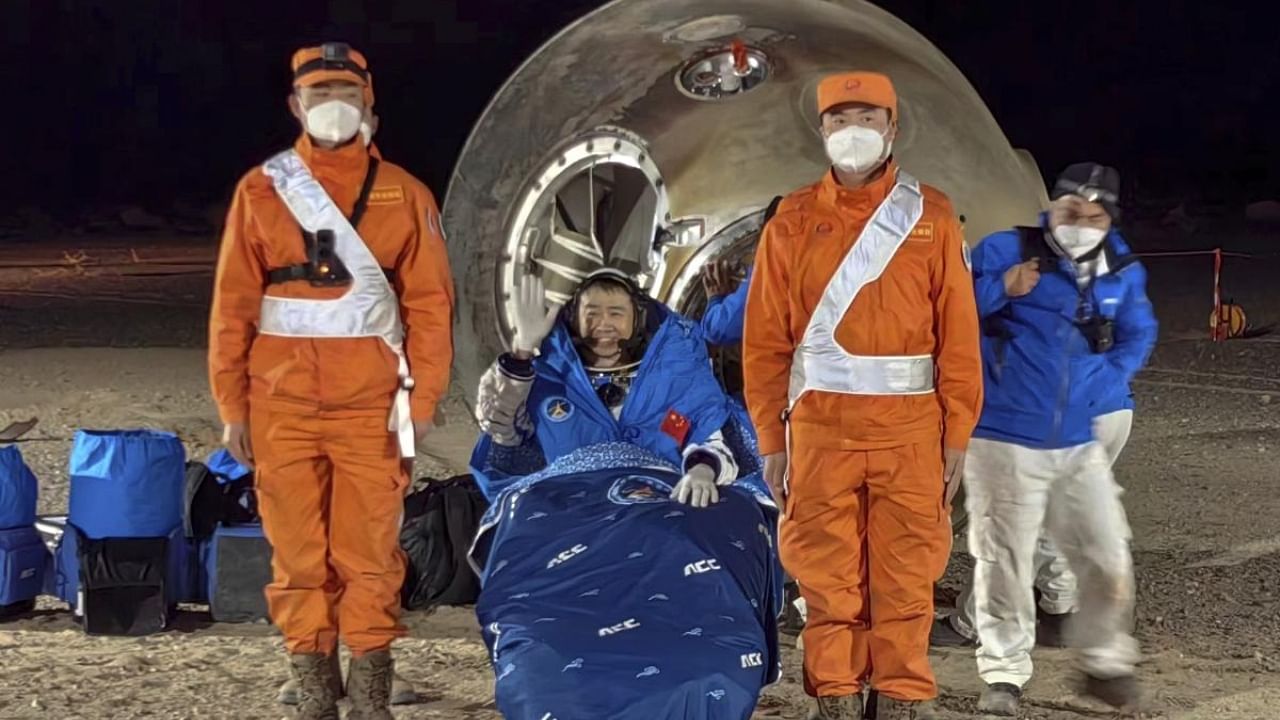
Three Chinese astronauts safely returned to Earth on Sunday after six months aboard the Tiangong space station, state media quoted the country's space agency as saying, with their mission deemed a "complete success."
The team, which had been aboard the station since early June, touched down at the Dongfeng landing site in Inner Mongolia at 8:09 pm Beijing time (1209 GMT), Xinhua news agency said, citing the China Manned Space Agency. Medical personnel said they were in good health, the report said.
The Tiangong space station is the crown jewel of Beijing's ambitious space programme -- which has landed robotic rovers on Mars and the Moon, and made the country the third to put humans in orbit -- as it looks to catch up with the United States and Russia.
The three Shenzhou-14 astronauts -- mission commander Chen Dong, China's first woman astronaut Liu Yang and teammate Cai Xuzhe -- had been tasked with overseeing the final stages of construction of the space station.
The last module successfully docked with Tiangong's core structure last month, state media said -- a key step in its completion by year's end.
"I am honoured to witness the formation of our space station's basic configuration," said Chen, an air force pilot who became the first Chinese astronaut to stay in orbit for more than 200 days, according to Xinhua.
The team has handed the baton to the Shenzhou-15 crew -- China's first crew handover in orbit.
China has been excluded from the International Space Station since 2011 when the United States banned NASA from engaging with the country.
Once completed, the Tiangong space station is expected to have a mass of 90 tonnes -- around a quarter of the ISS -- or similar in size to the Soviet-built Mir station that orbited Earth from the 1980s until 2001.
Tiangong, which means "heavenly palace", will operate for around a decade and host a variety of experiments in near-zero gravity.